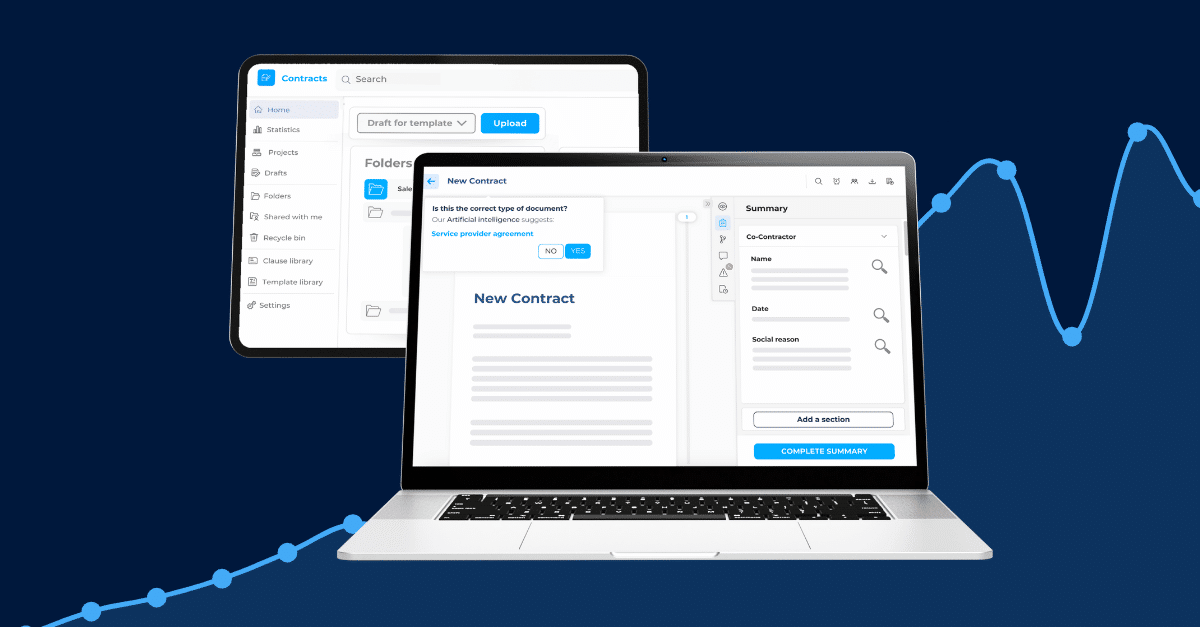Artificial intelligence is transforming legal operations by automating routine tasks, enhancing legal research, and improving contract and matter management. AI in legal operations improves efficiency, accuracy, and access to legal services while raising new ethical and data privacy questions. Rather than replacing attorneys, AI supports legal professionals and legal ops teams so they focus on strategic, human-centered work, making legal technology adoption essential for the future of legal practice.
Artificial intelligence is reshaping legal operations across the legal industry, offering new opportunities for efficiency and innovation. As legal departments and corporate legal teams face increasing workloads and pressure to deliver more with fewer resources, AI in legal operations is emerging as a practical way to standardize workflows. This transformation is not about replacing attorneys but about strengthening their expertise through smart automation, data-driven insights, and integrated legal technology.
How AI Is Transforming Legal Operations Workflows
The impact of artificial intelligence on legal operations extends across multiple functions, transforming how legal departments and law firms manage routine and complex tasks across matters, contracts, and compliance.
Document Review and Contract Analysis
AI excels at processing large volumes of legal documents with remarkable speed. In legal operations, advanced AI tools support document review and contract analysis by identifying key clauses and potential issues in a fraction of the time required for manual review. This capability is particularly valuable during due diligence processes, where legal teams and corporate legal departments must examine thousands of documents under tight deadlines.
For instance, AI-powered contract review tools identify non-standard language, missing clauses, and potential risks across entire contract portfolios. This allows attorneys to focus on strategic analysis rather than spending hours on document comparison.
Legal Research and Case Prediction
Legal research, traditionally time-intensive, has been streamlined through AI systems that search vast databases of case law, statutes, and legal publications. In legal operations, these AI tools help legal professionals and in-house counsel find relevant precedents and assess their applicability to current matters with greater consistency.
Beyond research, predictive analytics help attorneys assess case outcomes based on historical data. By analyzing factors such as jurisdiction, judge history, and similar case results, these systems provide insights that inform litigation strategy and settlement decisions.
Due Diligence Automation
Due diligence processes benefit significantly from AI automation. When examining corporate records, intellectual property assets, or compliance documentation, AI tools identify patterns, anomalies, and potential risks that might otherwise remain hidden in mountains of data.
This automation reduces the time required for thorough due diligence from weeks to days while improving accuracy, completeness of findings, and overall performance of legal operations.
Key Benefits of AI in Legal Operations for Legal Professionals
The integration of artificial intelligence into legal operations delivers multiple advantages that enhance performance, support legal teams, and strengthen client service.
Efficiency and Cost Reduction
AI dramatically reduces time spent on repetitive tasks. Document review that once required days of attorney time now takes hours with AI assistance. This efficiency translates directly to cost savings for legal departments, corporate legal teams, and their internal or external clients across the legal industry.
Improved Accuracy and Consistency
Human reviewers, regardless of expertise, experience fatigue and occasional oversight. AI systems maintain consistent performance across thousands of documents without tiring. They apply the same analytical criteria to every document, reducing the risk of missed issues or inconsistent interpretations.
AI-powered tools demonstrate higher accuracy rates in identifying specific contract provisions compared to manual review, particularly when dealing with standardized documents.
Enhanced Access to Legal Services
By reducing costs and increasing efficiency, AI makes legal services more accessible to groups traditionally underserved by the legal system. Small businesses and individuals benefit from AI-enabled legal tools and self-service experiences that provide basic services at lower price points than traditional legal representation.
Challenges and Ethical Considerations in AI Adoption
Despite its benefits, implementing artificial intelligence in legal operations presents significant challenges that require careful consideration, especially around data governance, privacy, and compliance.
Data Privacy and Security
Legal documents contain highly sensitive information protected by attorney-client privilege. AI systems processing this data must maintain rigorous security standards to prevent breaches or unauthorized access.
Law firms must ensure their AI tools comply with data protection regulations and maintain appropriate safeguards for client information. This includes understanding where data is stored, who has access to it and how it is protected during processing.
Accuracy and Oversight
While AI delivers impressive results, it requires human oversight to ensure accuracy. Current systems occasionally produce incorrect analyses or miss nuanced legal issues that experienced attorneys would identify. This necessitates a collaborative approach where AI augments rather than replaces professional judgment.
Ethical Implications
The use of artificial intelligence in legal practice raises ethical questions regarding responsibility and transparency. When AI contributes to legal analysis, attorneys must understand how these systems reach their conclusions to fulfill their professional duty of competent representation.
Additionally, legal professionals must address questions about:
The Changing Role of Legal Professionals
As AI transforms legal operations, attorneys, legal operations managers, and general counsel are adapting their skills and approaches to thrive in this new environment.
Evolving Skill Requirements
Tomorrow’s successful legal professionals will combine traditional legal expertise with technological literacy. Understanding AI capabilities, limitations, and appropriate applications becomes as important as knowledge of substantive law.
Law schools are responding by incorporating legal technology courses into their curricula, preparing students for a practice environment where AI tools are standard. Continuing education for practicing attorneys increasingly focuses on legal technology adoption and management of AI in legal operations.
New Roles and Opportunities
The rise of legal AI creates new career paths within the profession. Roles such as legal knowledge engineers, who help train AI systems on legal concepts, and legal data analysts, who interpret AI-generated insights, offer exciting opportunities for legal professionals interested in technology.
Law firms and corporate legal departments are establishing innovation programs and legal technology committees to evaluate AI tools for legal operations and develop implementation strategies that align with business objectives and client needs.
The Future of AI in Legal Operations and Corporate Legal Management
The evolution of artificial intelligence in the legal sector continues at a rapid pace, with several trends shaping its future development.
Integration Across Legal Workflows
Rather than standalone applications, future AI systems will integrate seamlessly across entire legal operations workflows, from intake to document review, legal research, contract management, and matter management. From initial client intake through research, document drafting, and case management, AI will provide connected insights and automation throughout the matter lifecycle.
This integration will deliver greater value than isolated tools, creating a cohesive technology ecosystem that supports comprehensive legal service delivery.
Specialized Legal AI Applications
As the technology matures, we’ll see more specialized AI applications designed for specific practice areas. These purpose-built tools will incorporate domain-specific knowledge and analytical frameworks tailored to areas such as intellectual property, tax law, or corporate governance.
For corporate legal departments, solutions like DiliTrust offer specialized AI capabilities for board management, contract lifecycle management, entity management, and matter management. With Lini, DiliTrust’s proprietary AI, legal teams gain secure, contextual insights that support end-to-end legal operations. These integrated governance solutions address the specific needs of in-house legal teams and legal ops professionals while maintaining the highest standards of security and compliance.
Collaborative Intelligence
The most promising future for legal AI lies in collaborative intelligence, systems designed specifically to enhance human capabilities rather than replace them. These tools will emphasize transparent reasoning, explainable results, and interfaces that facilitate attorney-AI collaboration.
Embracing the AI-Enhanced Legal Future
Artificial intelligence is fundamentally transforming legal operations, offering meaningful opportunities to improve efficiency, accuracy, and access to legal services across corporate legal departments and law firms.. While challenges remain, particularly around ethics, privacy, and appropriate oversight, the trajectory is clear: AI will become an essential element of competitive legal practice.
For legal departments and law firms, the question is no longer whether to adopt AI but how to implement it strategically. Those who thoughtfully integrate artificial intelligence into their practice while maintaining their professional judgment and ethical standards will define the future of legal services.
The most successful legal professionals will be those who view AI not as a replacement but as a powerful tool that allows them to focus on the uniquely human aspects of legal practice: creativity, empathy, judgment, and strategic thinking. By embracing this balanced approach, the legal profession will continue to evolve while preserving its essential role in society.



